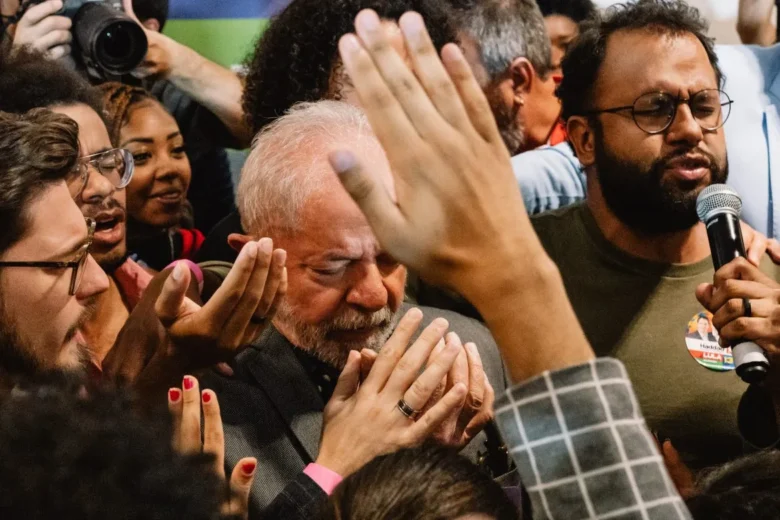As Brazil grapples with the fallout of its 2022 election, Apocalypse in the Tropics, a compelling new documentary by Petra Costa, arrives with uncanny relevance. The film charts the turbulent political trajectory of former president Jair Bolsonaro, drawing unmistakable parallels to Trumpism and the global threats facing democracy today. With Bolsonaro now facing trial for attempting to overturn election results and U.S. president Donald Trump defending him publicly, Costa’s work offers not just timely insight but also a stark warning.
Premiering in theaters on July 11 and arriving on Netflix just days later, the documentary serves as a sobering exploration of democratic fragility in the modern era. For American audiences, it goes beyond foreign affairs—it’s a mirror, a cautionary tale, and perhaps a guide for preserving democracy at home.
How does ‘Apocalypse in the Tropics’ link Bolsonaro to global anti-democratic trends?
At the center of Costa’s narrative is the rise and fall of Bolsonaro, whose presidency was defined by hard-right policies, a dismantling of democratic institutions, and fervent Evangelical support. Elected in 2018, Bolsonaro leaned into populist rhetoric and was swiftly embraced by Brazil’s powerful Evangelical Christian base. Once in office, he began to weaken crucial governmental bodies, particularly targeting Brazil’s Supreme Court.
Petra Costa, known for her previous documentary The Edge of Democracy, takes a clear stance in drawing connections between Bolsonarism and Trumpism. Her lens doesn’t merely portray a domestic Brazilian conflict—it broadens to encompass a global pattern where populist leaders gain power by undermining trust in electoral systems and democratic norms.
As the 2022 election approached, Bolsonaro’s mishandling of the COVID-19 pandemic further polarized the electorate. His opponent, former president Luiz Inácio Lula da Silva, positioned himself as a defender of institutional integrity while strategically addressing Evangelical concerns to win back critical support.
What historical and ideological forces shaped Brazil’s political landscape?
Costa’s film is not just a political exposé; it’s a historical excavation. She dives deep into Latin America’s ideological struggles, touching on the influence of U.S. foreign policy during the Cold War. Figures like Richard Nixon, Henry Kissinger, and Evangelical icon Billy Graham appear in archival footage, underscoring how Brazil became a battleground for competing ideologies: brutal capitalism, military dictatorship, and democratic-socialist reform.
The film narrates how Brazil evolved into a laboratory for stark socioeconomic inequality, where millions turned to Evangelical Christianity for hope. Costa highlights that the Evangelical population surged from 5% in the 1980s to 30% today, giving Bolsonaro a powerful electoral base.
In one of the documentary’s most startling moments, Lula da Silva, despite his leftist roots, adopts conservative Evangelical talking points in the 2022 election—condemning abortion and gender-inclusive policies as “Satanic” in origin. The film doesn’t judge so much as it reveals the strategic shifts politicians make to secure power in a deeply divided society.
Can ‘Apocalypse in the Tropics’ serve as a wake-up call for democracy worldwide?
Though rooted in Brazil, Apocalypse in the Tropics resonates globally. Costa uses the history of Brasília, Brazil’s meticulously planned capital, as a metaphor for democratic aspirations. The city’s design once symbolized a balanced tripartite government—executive, legislative, and judicial. Tellingly, an original church in the blueprint was removed to reinforce the separation of church and state. That ideal, Costa suggests, has eroded.
The film concludes not with despair but with a quiet yearning for renewal. It’s a reminder that democracy, though fragile, is also resilient when people fight to protect it. Costa offers no easy answers but poses vital questions: How do we prevent history from repeating itself? What role do faith, media, and institutions play in either upholding or dismantling democracy?
By contextualizing Brazil’s turmoil within a global pattern, Petra Costa delivers a chilling yet essential message. Apocalypse in the Tropics isn’t just a documentary—it’s a vital piece of political cinema that challenges viewers to stay vigilant, informed, and engaged.







